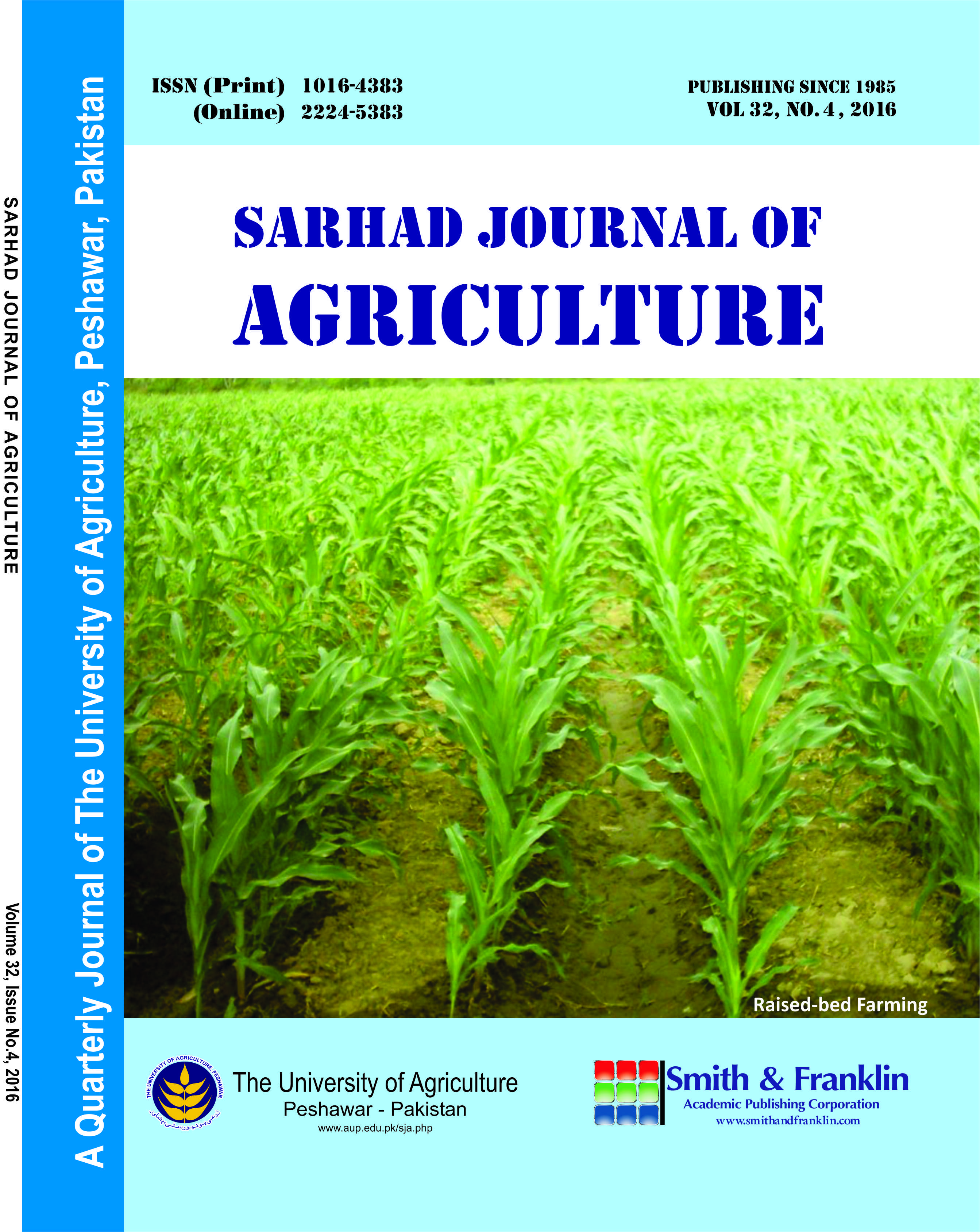Estimation of Wheat Yield Response under Different Agro-Climatic Conditions in Punjab
Estimation of Wheat Yield Response under Different Agro-Climatic Conditions in Punjab
Farhad Zulfiqar, Muhammad Ashfaq
ABSTRACT
The knowledge of supply greatly helps planners and policy makers to allocate and achieve production targets and in longer term planning. A study was conducted during 2009-10 with an objective to estimate the wheat yield response function in two agro-ecological zones in Punjab. The method of ordinary least square was used. Time series data for different explanatory variable (eco- nomic, location and climatic) from 1979-2009 relating to wheat were used for Faisalabad and Ba- hawalpur. The results of analysis showed that the effect of climatic variables was found significantly higher than that of non-climatic variables. The largest impact on wheat yield was of mean maximum average temperature at the time of maturity, ceteris paribus with one oC increase in temperature the average wheat yield increased by 56.64 kg per hectare in the study area. It was deduced from the economic variable that the level of input used was less than optimum. The negative coefficient of the location variables revealed that increasing the area virtually decreased the yield. It was concluded from location variables that vertical expansion was solution of Pakistan’s growing food security needs. Based on the results of the economic variables it is recommended that the optimal input use should be ensured to increase crop yield. Also because of the significant changes in the climatic conditions in the two zones there will be growing need of developing new wheat varieties which should be more adaptable to changing climatic conditions.
To share on other social networks, click on any share button. What are these?







